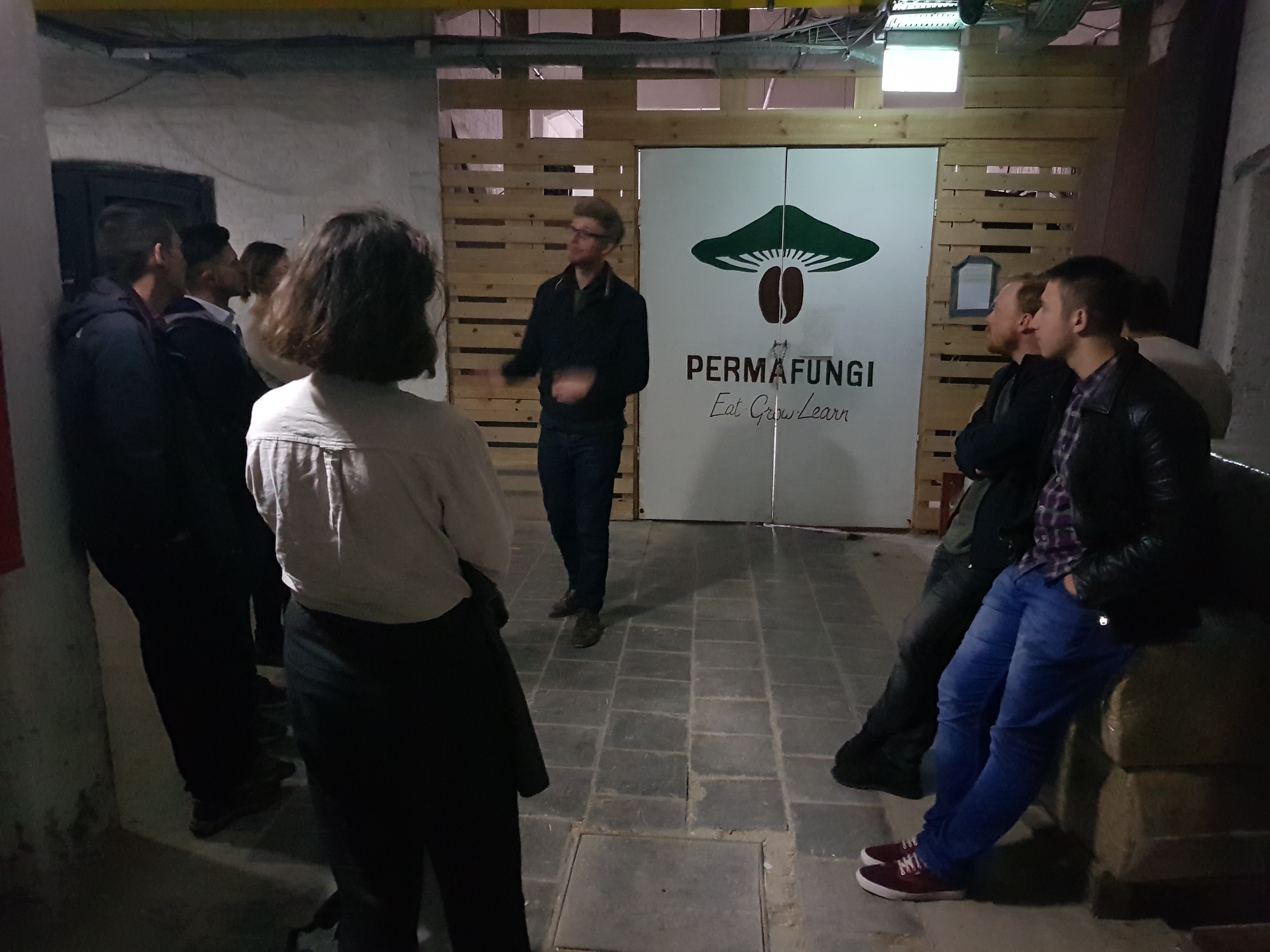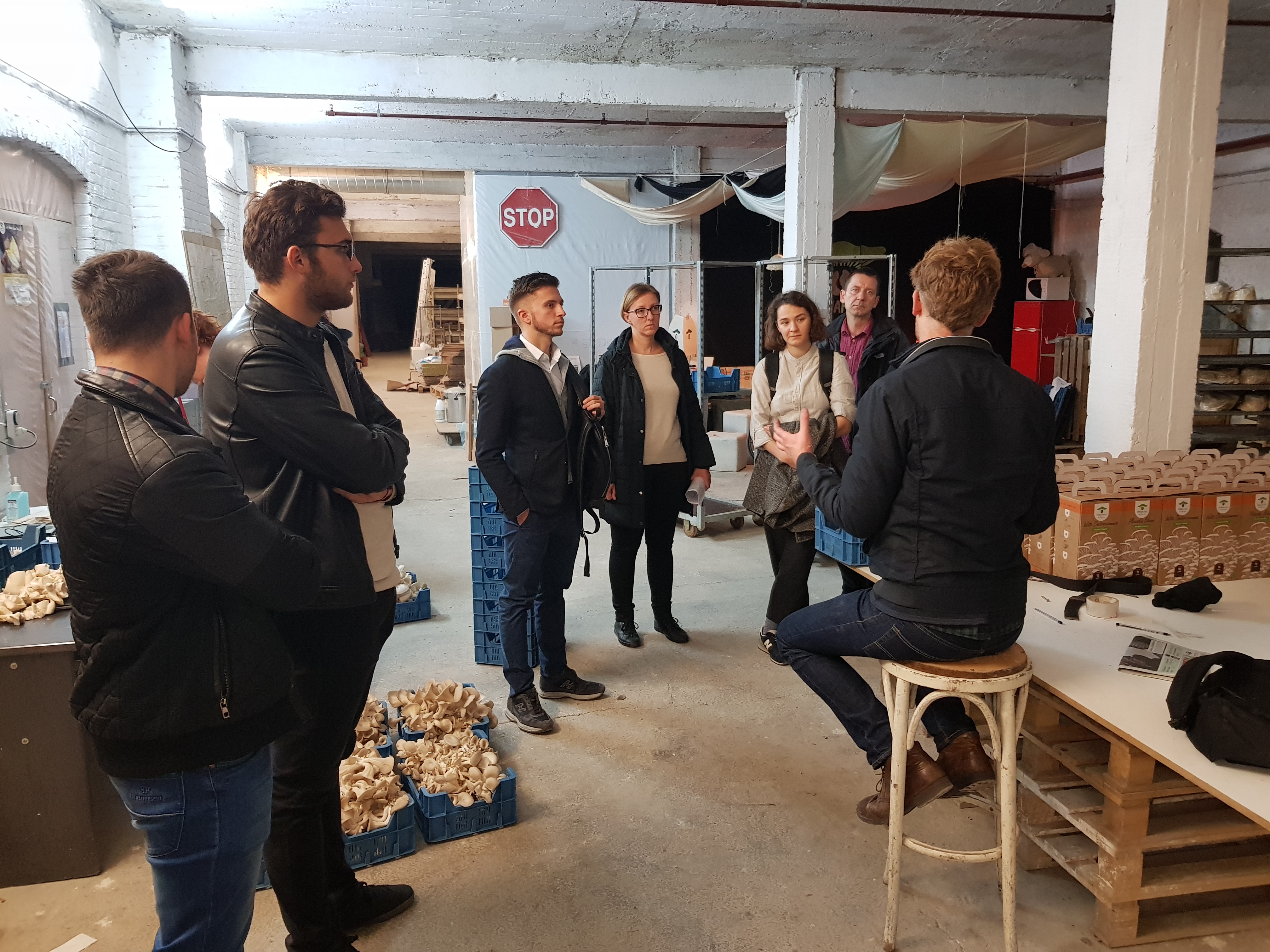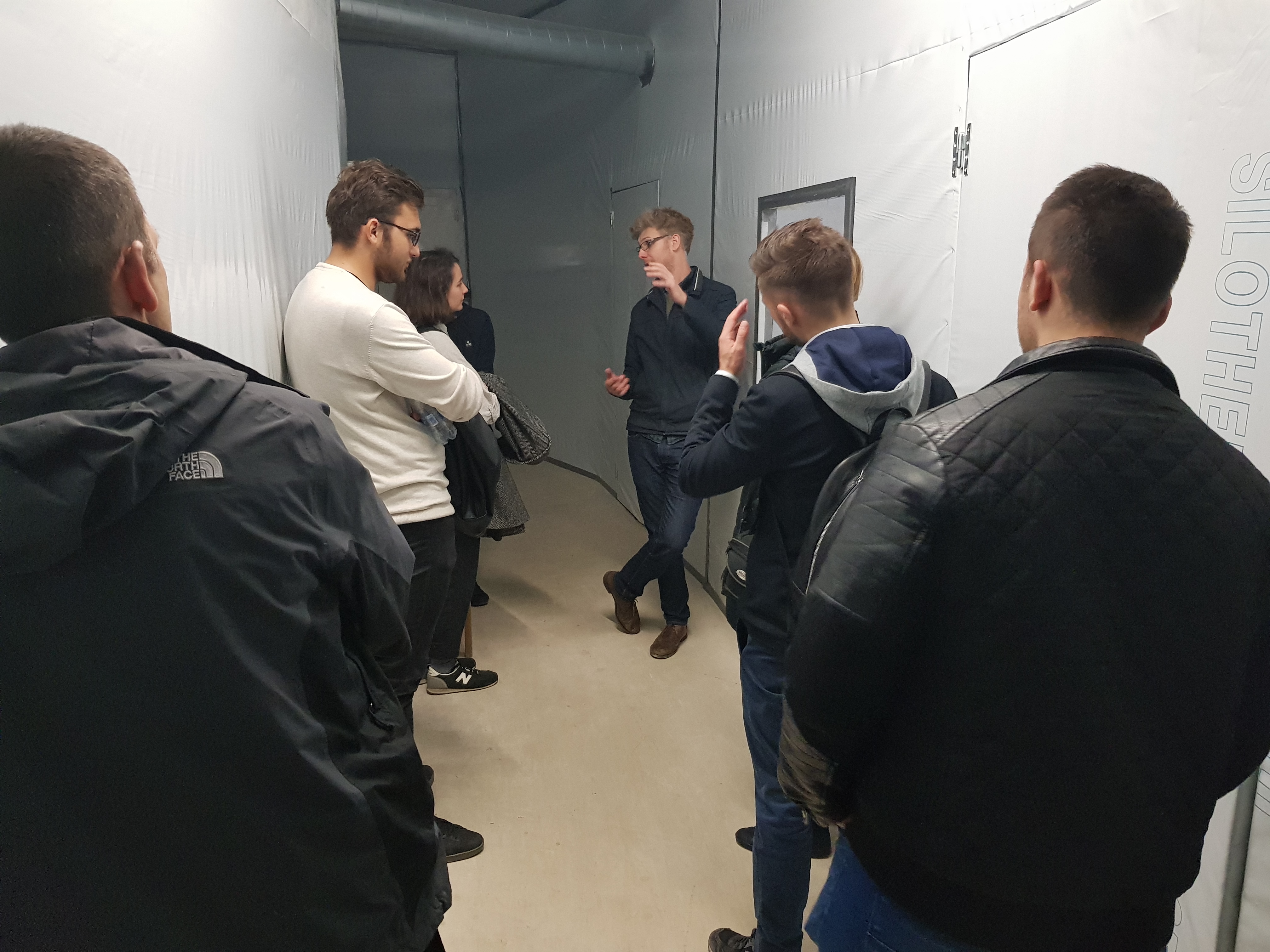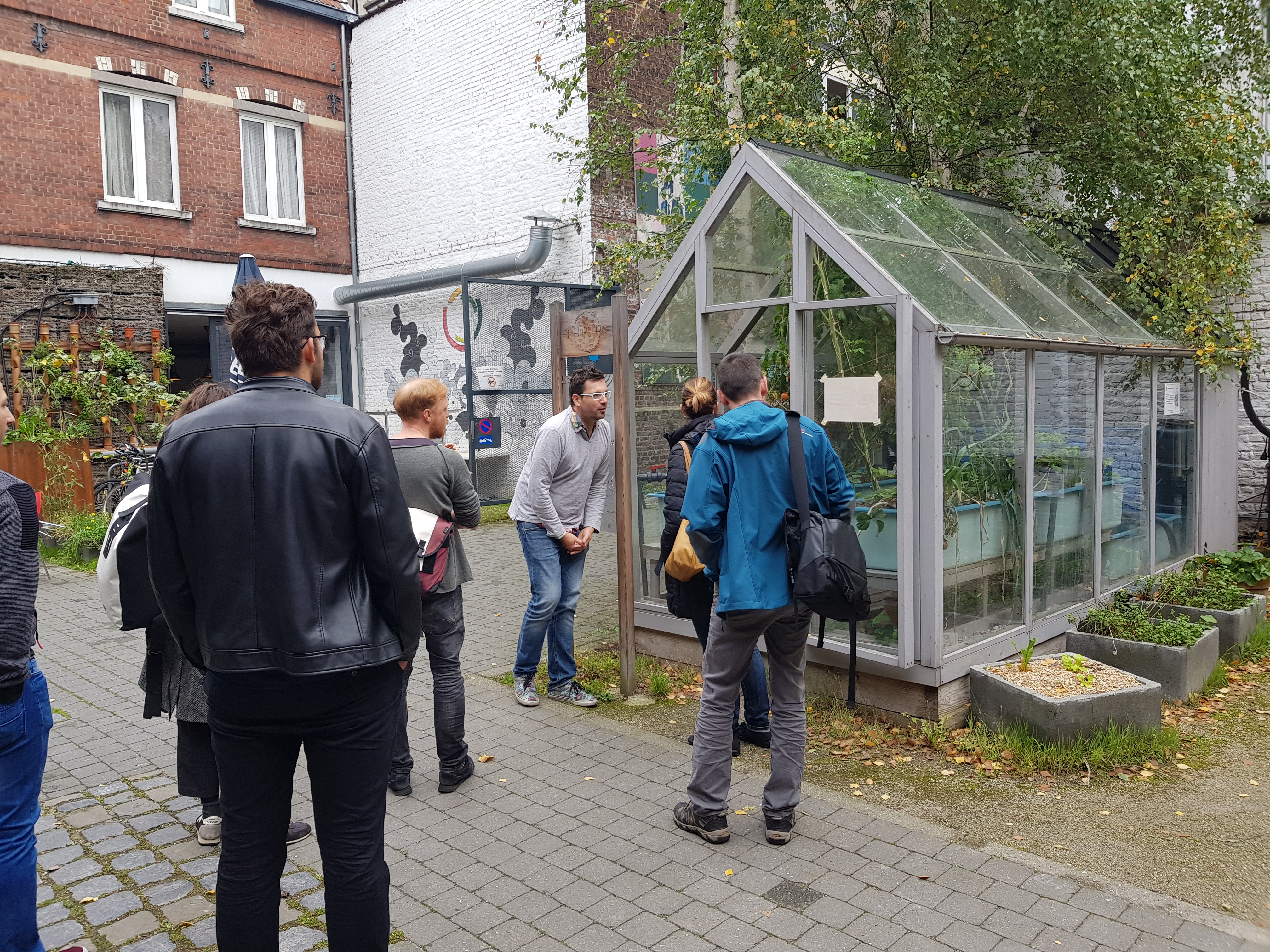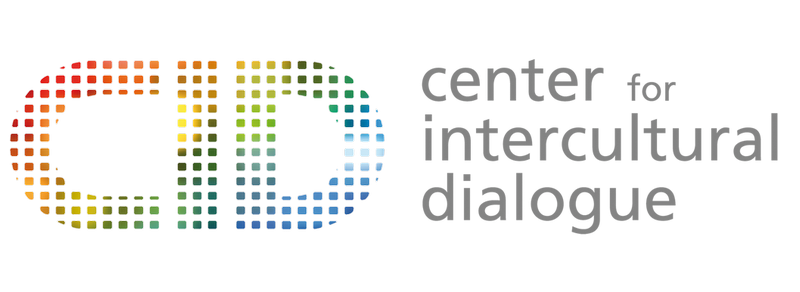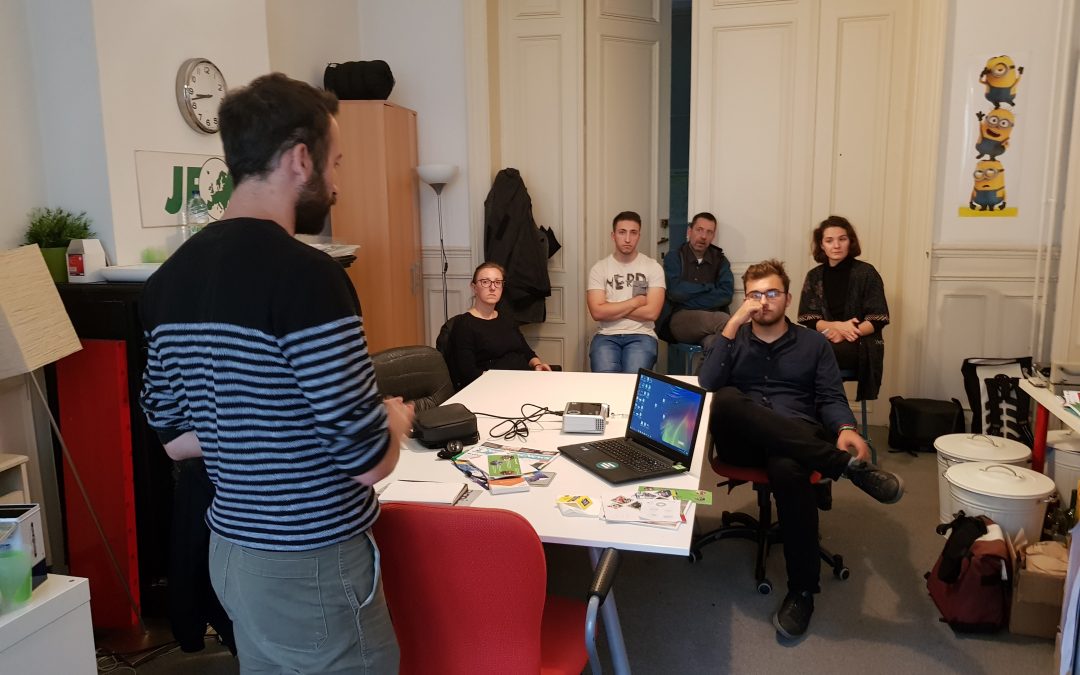In the last week of October (22-27 October), as part of the long-term project “Social Inclusion through Entrepreneurship“, Out of the Box International organized a study visit in Brussels for participants coming from Belgium, Germany and Macedonia. The project aimed to develop the capacity of educators and leaders who are active and experienced in adult learning programmes, to design and deliver educational programmes, to facilitate inclusion and to initiate employability. This was done by supporting the promotion of social entrepreneurship through adult learning programmes.
The study visit offered space for participants to get to know how entrepreneurship can be used as a tool for social inclusion but also how to develop an enabling environment for entrepreneurship. This was done through discussions among the participant and sharing examples from their countries about different social businesses and also through visiting different businesses hubs, social businesses, initiatives and non-governmental organizations.
The participants also discussed about how lobbying and advocacy is happening in Brussels towards the international institutions. This is the role that the CSO take towards supporting different inclusion initiatives and ensuring that the voice of the people is heard.
The following visits were organized as part of the event:
⥇ Out of the Box International (project partner): network which brings together different actors working on social innovation and advocating for a more creative Europe with a main mission to provide fresh ideas and solutions acting as a catalyst for positive changes across Europe and worldwide. Our main goal is to design innovative social projects to respond to the persistent social and economic challenges in order to empower people’s potential and facilitate their active engagement in society.
⥇ European Projects Association: politically independent nonprofit organization focused on research and development, innovation and internationalization. EPA supports the goals of organizations, experts and individuals with a complete set of ICT tools on My Europa platform and services that foster development, effective implementation and efficient dissemination of EU projects.
⥇ Young European Federalists – JEF Brussels: another example for the participants on how successful lobbying and advocacy can be organized. JEF shared about their actions and activities with the parliament of the European Union. But also talked how do they tackle inclusion in a youth political nonpartisan organization.
⥇ Parlamentarium (House of Europe): Since the study visit was organized in Brussels and the main advocacy in Brussels is happening towards the European Union the participants also had the chance to visit the Parliamentarium/House of Europe where they received a lot of information about Europe.
⥇ Our House Project: The talks with the people behind Our house Project that is an social business that
started with the refugee crisis in Europe couple of years ago. It was started through a group of motivated individuals and at the moment is growing with more and more activities. The guests from OHP talked about their challenges in their work and how do they combine inclusion and entrepreneurship.
⥇ Vilage Partenaire: Beside the visits and the talks about the work of the institutions on the topics of business and inclusion the participants also visited an business hub that support interested people to start their own business. Through this visit the participants learned what are the main issues interested people face when planning/opening a new business. This visit was especially interesting because the participants had
the chance to talk with educators in adult education on the topic of inclusion and businesses.
⥇ Dine with Us!: After the previous visit the group also meet another initiative that is working towards inclusion of refugees and is an answer on the refugee cryses in Europe. Dine with us is an effective business/organization model that is very simple but very productive. Dine With Us brings together locals and newcomers in Belgium for a welcoming dinner. Together they organise a dinner party and both invite some extra friends or family members.
⥇ Foyer: Working and educating different minority and ethnic groups was another big accent of the discussions because of the realities of some of the participants. FOYER was the space where the participants learned about inclusion through education. With the discussions with the staff in FOYER the group talked about how to educate and motivate different disadvantaged groups. Foyer is a non-profit organization that was founded in 1969 as a youth centre. Situated in Molenbeek, it is active at the local, regional and international levels, focusing on social cohesion and on the empowerment and integration of people of immigrant background.
The group has discussed each visit at the end of the da, balancing the benefits and risks of implementing a certain social entreprise and discussing how some examples could be replicated in their own realities.
